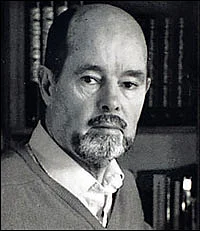
Knightley, who was a war correspondent with several leading British and Australian newspapers, has written extensively on propaganda and espionage. He met Assange in London and was tremendously impressed by his views.
“Journalists have always known in their heart of hearts that their reporting on government has only been half the story. How to get the other half? How to sort out the truth from the propaganda? Julian Assange and those who provided his organisation with its sensational material have answered this,” Knightley said.
Assange had been labelled “a criminal” for facilitating the release of the secret documents, but no one could say what crime he had committed, Knightley argued. He said Wikileaks did not steal the documents. All it did was to publish them. So did the New York Times and thousands of other newspapers throughout the world.
Wikileaks had shown the contempt with which governments treated ordinary populations, said Knightley.
The legendary British espionage writer still believes the biggest secret of espionage is that spying doesn’t work. The assessment was more true now than ever before, he said.
Though espionage is back in business post 9/11, the shortcomings of the world’s leading intelligence agencies had been glaringly exposed, he said.
“The Western agencies haven’t the faintest idea about terrorism or Al Qaida, and that is part of the reason for their paranoia,” he told Deccan Herald. Knightley is also dismissive of the theory that Britain is under a serious threat from home-grown Islamic terrorists. “They are desperate for a breakthrough on the terror front and therefore constantly put out these announcements to frighten the public,” he said.
Phillip Knightley wrote ‘Philby, KGB Master Spy’ in 1989 and has nearly a dozen books to his credit.
Just months before Kim Philby’s death, he spent a week in Moscow interviewing the notorious British MI6 spy who worked as a double agent for the Soviet Union.
Knightley has reported extensively on war, espionage, and propaganda; he has met and interviewed most spy chiefs of major intelligence services.
Knightley described it as the “greatest confidence trick of the 20th Century” and said major intelligence services were like “a government within a government” wielding enormous power. They thrive on creating monsters.
